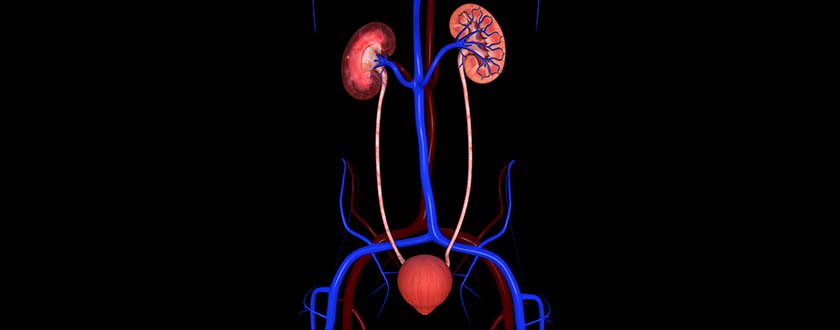Blockage or obstruction in the urinary tract can occur in the upper urinary tract (kidneys and ureters) as well as in the lower urinary tract (urethra). Blockages in the urinary tract can be present since birth as in congenital ureteropelvic junction obstruction (UPJ Obstruction), occur later on in life as in acquired UPJ obstruction, or narrowing (strictures) of the ureters or urethra. A variety of conditions can lead to acquired blockages in the urinary tract. These may include infections, urinary stones, anatomical variations, radiation, cancer, trauma, abnormalities of adjacent organs, and injury from surgery. Symptoms of urinary tract obstruction may include infection, bleeding, pain, and progressive decline of kidney function with possible eventual kidney loss. In case of strictures in the urethra, there can also be a decline in the ability of the bladder to contract and force urine out, resulting in urinary retention and lifelong need for a catheter to drain the bladder.
With advancements in surgical technology, the surgeons here treat many such conditions without a complex operation or a long hospital stay. Some blockages in the upper urinary tract can be treated with balloons and lasers through small flexible cameras (endoscopic surgery), without any incisions or cuts on the outside. More complex cases may warrant reconstructive surgery which can often be performed via robotic assisted techniques with small incisions, short hospital stay and faster recovery than traditional open surgery. Open surgery is reserved for the most complex cases.
We offer both endoscopic and robotic reconstructive surgery for both upper and lower urinary tract blockages. Urethral reconstructive surgery may be considered for significant urethral strictures.
For more in depth information on Urinary Obstruction, please refer to these Urology Care Foundation™ links:
Ureteropelvic Junction (UPJ) Obstruction: Symptoms, Diagnosis & Treatment

